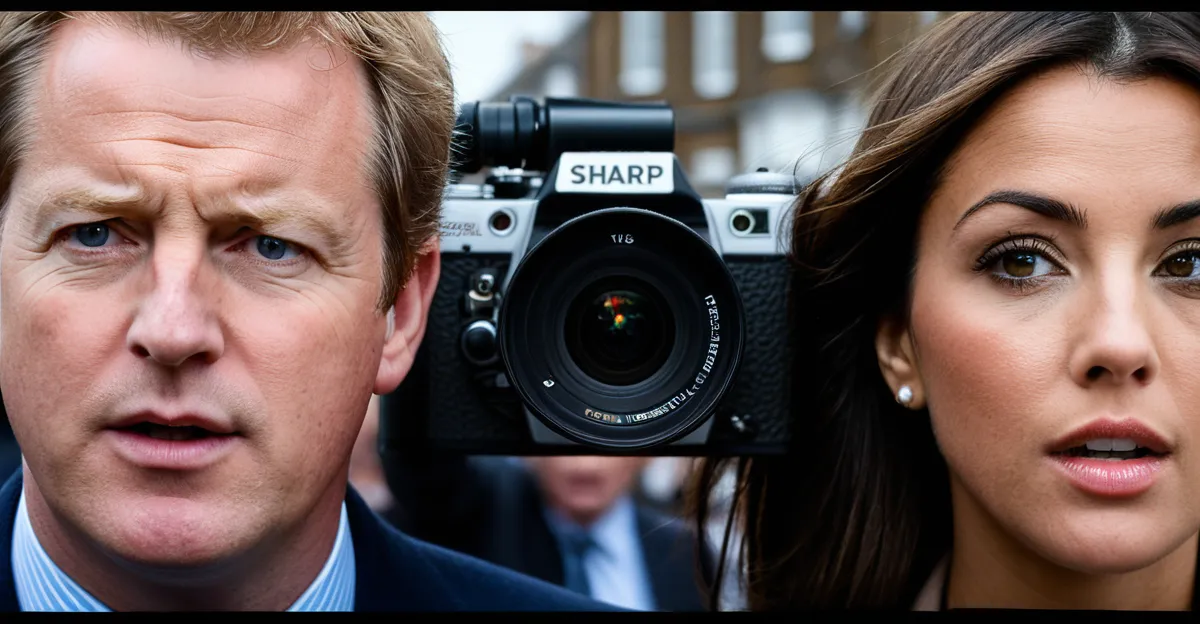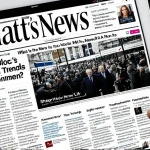Overview of UK Media Landscape
The UK media landscape has evolved significantly over the years, adapting to changes in technology, audience preferences, and societal norms. Historically, the UK’s media industry has been a powerful force in shaping public discourse. From the pioneering days of print journalism to the rise of digital media platforms, the landscape has been in constant flux.
Major Players in UK Media
In the UK, the media industry is dominated by a mix of newspapers, television channels, and online platforms. Key players include traditional newspapers like The Times and The Guardian, which have expanded their reach online. Television remains influential, with broadcasters such as the BBC and ITV leading the way. In recent years, online platforms and social media have grown substantially, becoming primary sources of information for younger demographics.
In the same genre : What’s Driving the Latest Trends in UK News?
Public Service Broadcasting vs. Commercial Media
The role of public service broadcasting, particularly the BBC, is a cornerstone of the UK media landscape. Unlike commercial media, which primarily relies on advertising revenue, public service broadcasters are funded by the public and have a mandate to provide impartial and comprehensive coverage. This distinction often leads to differences in how news is reported and perceived, with public service broadcasters focusing on educational content and commercial outlets sometimes prioritizing sensationalism to attract viewers.
Influence of Media Framing on Public Perception
Media framing plays a crucial role in shaping public perception by influencing how information is presented and understood. At the heart of this phenomenon lies framing theory, which suggests that the way media outlets structure news stories can significantly alter the audience’s interpretation of the facts. For instance, the tone or emphasis placed on certain aspects of a news report can lead viewers to form particular opinions, impacting their understanding and attitudes toward issues both locally and internationally.
Also to discover : What Are the Long-Term Implications of Recent UK News Events?
Several case studies highlight the real-world impact of media framing. For example, the framing of international events, like conflicts or diplomatic tensions, can shape public perception dramatically. In instances where media outlets focus on specific narratives or angles, such as portraying a nation as aggressors or victims, audience perceptions can be swayed toward these perspectives. This not only influences public opinion but can also affect international relations and political decisions.
The implications of different framing approaches are profound, as they underscore the media’s power in moulding public attitudes. When media outlets choose frames that align with sensationalist or biased narratives, it can lead to widespread misunderstanding or skewed perspectives among the public. Conversely, responsible framing that provides balanced and comprehensive coverage has the potential to foster greater awareness and informed opinions, ultimately contributing positively to democratic processes and international dialogue.
Media Bias and Its Impact on International Relations
In examining media bias within the UK landscape, it becomes evident that bias in reporting is not a new phenomenon but rather a deeply rooted issue with far-reaching impacts on international relations. At the core, media bias refers to the perceived or real partiality in the selection of events or stories that are reported and how they are covered. This can manifest in several ways, including the omission of important details, selection of certain facts over others, and even the use of language that indicates a particular stance.
Historically, various UK media outlets have been associated with distinct political ideologies, influencing their coverage of international events. For example, tabloids and broadsheets may portray distinct biases towards certain foreign nations, often tied to the political leanings of their editorial policies. Such biased reporting can affect public perceptions of countries, especially when stories emphasize conflict or portray adversaries in a negative light. This, in turn, has the potential to influence political decisions and diplomatic relations, shaping foreign policy based on skewed public opinions rather than nuanced understanding.
Illustrations of biased reporting can be seen in coverage of international events such as wars or political unrest, where certain UK newspapers might focus on particular narratives that align with national interests or defense strategies. These narratives can contribute to a singular worldview that simplifies complex geopolitical situations, thus affecting the general public’s understanding and feelings towards international policies.
Ultimately, the challenge lies in maintaining a balance between attracting readership and offering fair, comprehensive news. Responsible journalism, free from partisan or nationalistic bias, is essential not only for informing the public but for fostering well-rounded discussions on international matters. As media continue to play a crucial role in shaping public opinion, addressing media bias remains vital for constructive international discourse.
The Role of Social Media in Shaping International Perceptions
In the digital age, social media has rapidly ascended as a dominant news source, reshaping how the public engages with international issues. Platforms like Twitter, Facebook, and Instagram have democratized information dissemination, allowing individuals worldwide to share and access content instantaneously. This transformation has led to both positive and negative effects on public opinion regarding global events.
Impact of Social Media Campaigns
Social media campaigns have the power to significantly influence public perception. When a topic trends on these platforms, it can reach and engage millions, shaping narratives and sometimes even policy. High-profile campaigns like those for climate change or human rights have galvanized support and informed audiences rapidly.
Case Studies: Positive and Negative Effects
The Arab Spring is one landmark example where social media played a pivotal role. Citizens used these platforms to organize and report on protests, providing unfiltered insights into the movements. On the flip side, social media can amplify misinformation, as seen with various disinformation campaigns impacting electoral processes.
As the reliance on social media continues to grow, its role in shaping international perceptions warrants careful scrutiny. Understanding and navigating this complex landscape is crucial for informed global citizenship.
Historical Case Studies of Media Influence on Public Opinion
The UK media has historically wielded considerable influence over public opinion, often shaping it through potent narratives. These historical case studies reveal the power of media and underscore the critical role of journalism in reflecting societal perspectives.
Key Historical Events
One notable instance where UK media played a crucial role was during the Falklands War in 1982. Media coverage was pivotal, with newspapers and television channels delivering stories that often portrayed a strong British stance. This media narrative significantly influenced public perception, fostering a sense of patriotism among the public.
Similarly, during the escalation of the Troubles in Northern Ireland, media outlets provided narratives that deeply affected how the rest of the UK perceived the conflict. Newspaper portrayals often accentuated the strife, influencing public sentiment towards the situation.
Public Reaction and Media Narratives
The media influence in these cases can be traced to its ability to frame events in ways that resonate with the public’s emotions and cultural identity. For instance, in the case of the Falklands War, journalistic enthusiasm for national defense was evident, leading to a robust rallying effect. On the other hand, the coverage of Northern Ireland’s Troubles elicited complex emotions, sometimes deepening divides due to the stressed differences between communities.
Lessons Learned
These historical examples of media influence highlight important lessons for today’s media landscape. It is crucial for modern UK journalism to recognize these past patterns to ensure responsible reporting that prioritizes balanced viewpoints and accurate information dissemination. Understanding the historical impact of media on public opinion can guide current practices towards fostering more informed and nuanced public discourse on international affairs.
Future Trends and Challenges for UK Media in International Reporting
As the UK media continues to evolve, future trends and challenges in international reporting are becoming increasingly evident. The media landscape is rapidly transforming, with technological advancements and shifts in audience engagement setting the stage for significant changes in UK journalism. Understanding these trends is essential for predicting how the UK media will shape global perceptions in the future.
Technological Advancements and Their Impact
The growth of digital media and advanced technologies is pushing UK media outlets to adapt swiftly. This includes the integration of artificial intelligence for news gathering and personalized content delivery, enhancing both efficiency and user experience. As technology evolves, it offers new methods for storytelling that can captivate global audiences, but also poses challenges in maintaining journalistic integrity and accuracy in a fast-paced environment.
Addressing Misinformation
One of the critical media challenges remains the persistence of misinformation, which can distort public opinion and international relations. Combating fake news requires rigorous fact-checking processes and transparent reporting practices. Efforts by media outlets to proactively address misinformation can build public trust and promote a more informed audience, necessary for meaningful dialogue on international issues.
Changing Audience Engagement
As audiences increasingly rely on varied sources for news, including social media and independent platforms, traditional UK media must innovate to retain relevance. The challenge lies in crafting appealing yet substantive content that encourages informed public opinion. In this context, public service broadcasters like the BBC have a unique role in balancing educational content with engaging delivery to foster critical thinking among viewers.
Opportunities for Responsible Media Practices
The future holds immense potential for responsible media practices, which are pivotal in enhancing understanding of international relations. By prioritizing ethical reporting and diverse perspectives, UK media can improve public perception and facilitate constructive global discussions. Encouraging media literacy among audiences also plays a crucial role in discerning credible information and promoting democratic values.
With these developments and challenges, the focus should remain on upholding the principles of journalism while embracing innovation. As the UK media landscape navigates this dynamic environment, it has the opportunity to shape an informed global citizenry equipped to tackle contemporary issues.
Contemporary Examples of Media Influence on Global Issues
The contemporary media landscape in the UK has significantly influenced public sentiment on myriad global issues. As UK media continues to shape narratives around events like Brexit and international conflicts, its impact on public opinion remains profound. For instance, the complex discourse surrounding Brexit, extensively reported in numerous UK outlets, has underscored internal and transnational tensions, influencing both domestic and global economic perspectives. The intense coverage highlighting the socio-political repercussions of Brexit reflects how media shape public understanding.
Furthermore, reporting on recent international conflicts in the UK press demonstrates the media’s capability to mold public attitudes toward foreign policy. The media’s portrayal of these conflicts, often emphasizing humanitarian concerns or geopolitical strategies, directly affects public perceptions and may sway political debates and policy decisions. This illustrates the dual role media plays in both informing and sometimes skewing public opinion through its representations.
In examining these contemporary instances, the persistent challenge remains ensuring that media representations are balanced and fact-driven. This context underlines the need for UK journalism to promote responsible reporting practices, mitigating bias and enhancing accurate public discourse on global issues. By doing so, media can contribute constructively to informed public engagement and decision-making on international matters.





